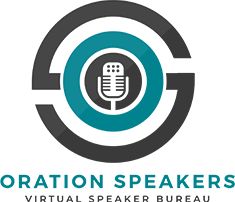In today’s competitive speaking industry, Professional Keynote Speaker Niche Identification is crucial for standing out, getting booked, and delivering impactful speeches. With event organisers seeking tailored messages and relevant expertise, identifying your specific niche can make or break your career as a speaker.
In this post, we will explore how to successfully identify your niche as a professional keynote speaker, why it’s important, and the key steps to help you craft a message that resonates with your audience.
In the past general themes like leadership and motivation sufficed for most speakers. However, now event organisers look for more tailored speeches that cater to their audience’s specific needs. As a result, professional keynote speakers must define their niche clearly to differentiate themselves in a crowded market. To figure that out take some advise from Speaker Jeff Dewar, who once said “Ask yourself, ‘If I had only sixty seconds on the stage, what would I absolutely have to say to get my message across?’”
Identifying your niche is more than just choosing a broad topic—it’s about positioning yourself as an expert on a very specific subject. For example, instead of simply speaking on leadership, you could specialise in leadership for remote teams or leadership in tech startups. A well-defined niche makes it easier for event organisers to see how you fit into their agenda, increasing your chances of being booked. For example, Simon Sinek starting off speaking about one topic “Start with Why” while Amy Cuddy talked about identifying her Super Power.
Identifying your keynote speaker niche involves careful reflection on your experiences, expertise, and audience demand. Here are the steps to get you started:
Step 1 – Assess Your Expertise and Passion
Start by reflecting on what you’re genuinely passionate about and where your expertise lies. Ask yourself:
- What do I enjoy speaking about? If you were to take Michelle Obama for example, it seems like she enjoys what she talks about, and it is clear she is on a mission when she speaks. She exhibits a remarkable ability to connect with her audience, largely due to her presence— which is a blend of poise, authenticity, and confidence. Her speeches are always on target, allowing her to deliver messages with clarity and passion, but she always seems to be in- the-moment and enjoying the process of speaking when delivering.
- Where have I achieved notable success? Is there an area in your life that you excel at where you would be comfortable speaking about. Think about successful Speakers such as Michaela Merk, who is an expert in luxury and premium branding, with over a decade of experience, she has inspired more than 100,000 individuals across 20 countries. Her dynamic presentations delve into customer engagement strategies and brand positioning, offering insights that are particularly valuable to businesses in the luxury sector. That is her niche.
- What unique knowledge or experience do I have? For example, Steve Wozniak has deep experience and unique experience of Apple, his views on AI as well as his legacy of innovation is very important and relevant to tech audiences or Anne Applebaum who, for example, in her latest book, Autocracy, Inc: The Dictators Who Want to Run the World, talks about how contemporary autocracies undermine democratic institutions globally, which is quite a unique niche or angle for speaking.
By focusing on what you love and excel at and what you are know about, you’ll not only become a sought-after keynote speaker in your niche but also enjoy the process.
Step 2 – Analyse Audience Needs
Next, look at your target audience. A great keynote speech doesn’t just showcase the speaker’s expertise; it also addresses the audience’s needs. Research your target market to understand what they struggle with and what kind of themed speeches they seek. As Jason Alan Snyder said “It’s not about the event itself; it’s about creating a memorable experience for your audience.” For example, if your target audience is made up of tech entrepreneurs, they might be more interested in scaling startups or adapting to fast-changing technological landscapes rather than general business growth.
Step 3 – Evaluate Market Demand
To ensure your niche is profitable, analyse the current market demand. Search online for events in your industry, check popular speaking circuits, and see which keynote topics are trending.
At the moment, Artificial Intelligence, AI remains a dominant theme, especially following the rise of tools like ChatGPT. Speakers are focusing on its implications for businesses and society, discussing how AI can transform operations and consumer interactions. Mental health in organisational settings is gaining traction where keynote discussions are centred around strategies for fostering mental resilience and creating supportive work environments, particularly in light of increasing workplace burnout
With the growing emphasis on environmental responsibility, Sustainability is still a hot topic. Speakers are addressing the urgency of climate action and how organisations can adopt sustainable practices to meet the expectations of younger generations. As conversations around equality continue, Diversity and Inclusion remain critical topics as Keynotes often explore how organisations can create inclusive cultures that embrace varied perspectives and backgrounds
Innovation is still a hot topic, (and has been for years) but it’s not just about new technologies; it’s about rethinking processes and approaches in various sectors. In the know Speakers, often discuss how to foster innovative thinking and adapt to disruptive changes in the market. There is also a strong focus on Authentic Leadership which prioritises growth and positive change. Keynote speakers like Ricardo Semler are now sharing insights on effective leadership strategies that resonate with modern audiences, particularly millennials and Gen Z.
As the world is in constant change, Managing Transitions effectively is crucial. Topics include preparing organisations for shifts in work culture and technology and helping employees navigate new norms. These topics reflect a blend of technological advancements, social responsibility, and personal well-being, making them highly relevant for today’s audiences. So, if there’s a demand for speakers who specialise in sustainability in business, and you have the expertise to speak on this topic, it might be the perfect niche for you.
Once you’ve identified your professional keynote speaker niche, it’s essential to differentiate yourself from others. Here are ways to stand out: A personal brand is your identity as a speaker, as Jeff Bezos says “Your personal brand is what people say about you when you are not in the room.” Develop a clear, consistent message that aligns with your niche. Create a professional website that includes testimonials, video footage of previous speeches, and case studies to demonstrate the impact of your work.
Customisation is also key. Make sure your tailored speeches cater directly to your audience’s needs. Whether it’s a themed speech for corporate executives or a customised talk for non-profits, the more specific you are, the more likely you are to connect with your audience and be remembered by event organisers. For example think about how beneficial the topic of The Role of Technology in Mental Health would work for some corporations but would not work at all for others.
To reach your ideal audience, you need to leverage social media, webinars, and podcasts as these platforms offer you the opportunity to showcase your expertise and grow your online presence within your niche.
Speakers who specialise in highly targeted subtopics tend to be in higher demand. For example, focusing on sustainability in the fashion industry or mental health in the workplace could be key trends where expert voices are needed.
With the rise of virtual events, many speakers are now offering hybrid speaking engagements that combine in-person and virtual presentations. This allows for a wider reach while maintaining a focused niche.
Defining your niche is no longer optional in the speaking industry. As a professional keynote speaker, narrowing your focus to a specific topic that aligns with your expertise and audience needs will ensure you stand out and get booked. By following the steps outlined here—assessing your passion, understanding your audience, and staying on top of market demand—you can establish yourself as a go-to expert in your field and build a thriving speaking career.
If you want to learn more and get some private strategy coaching please contact me directly info@orationspeakers.com and we’ll set up a call to help you find your unique voice!




